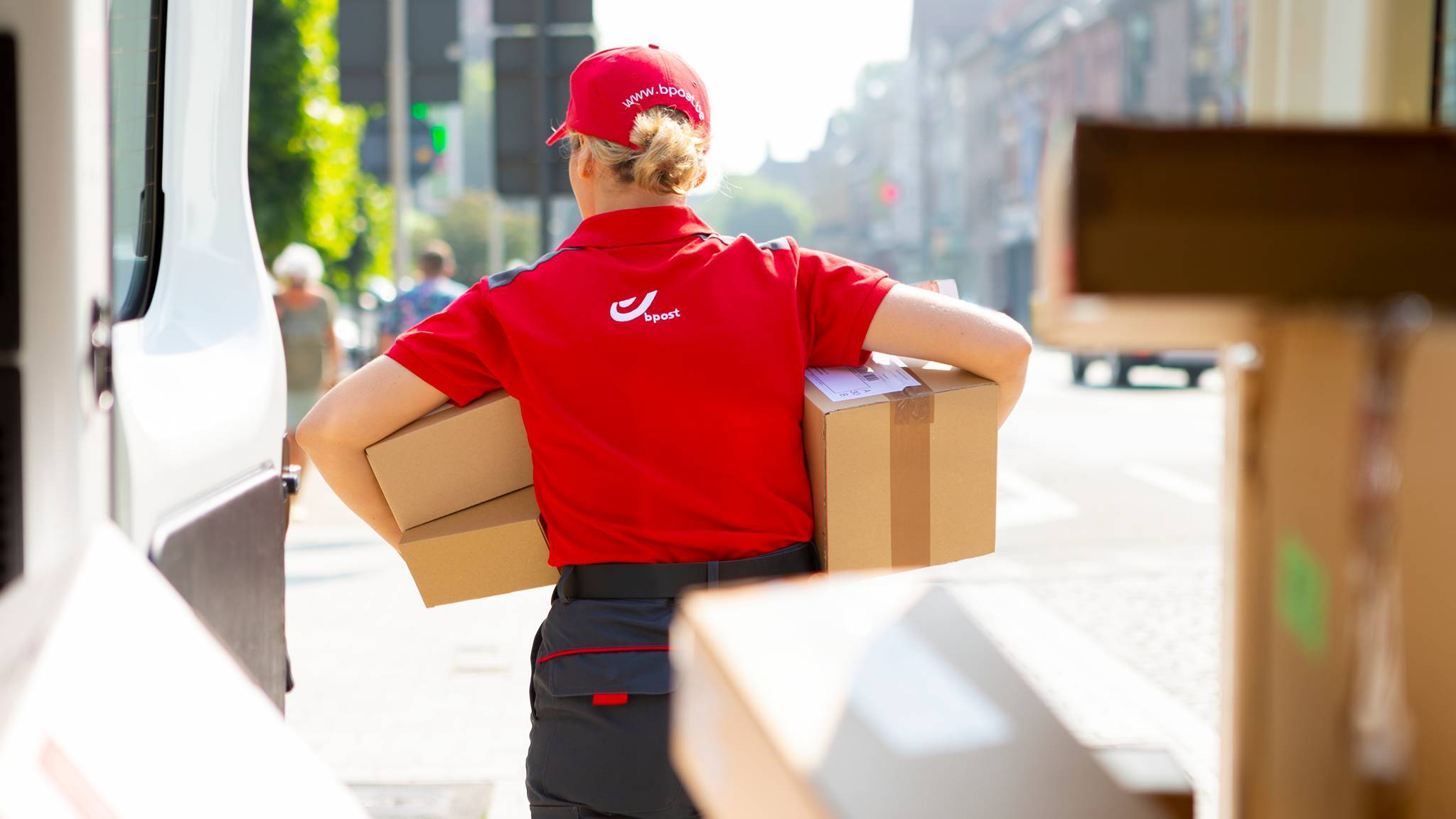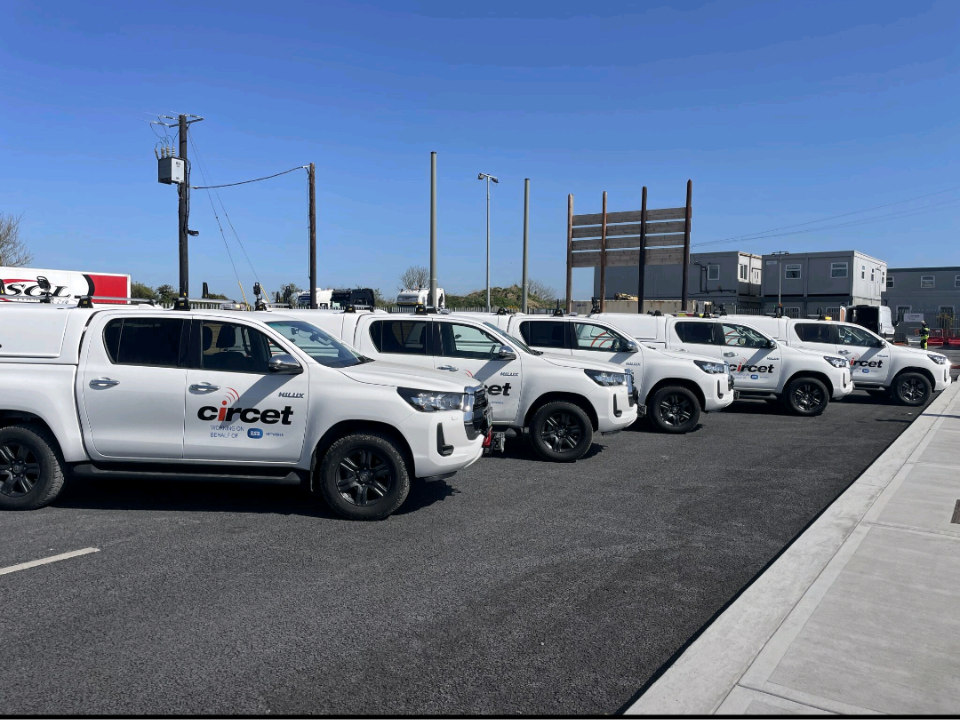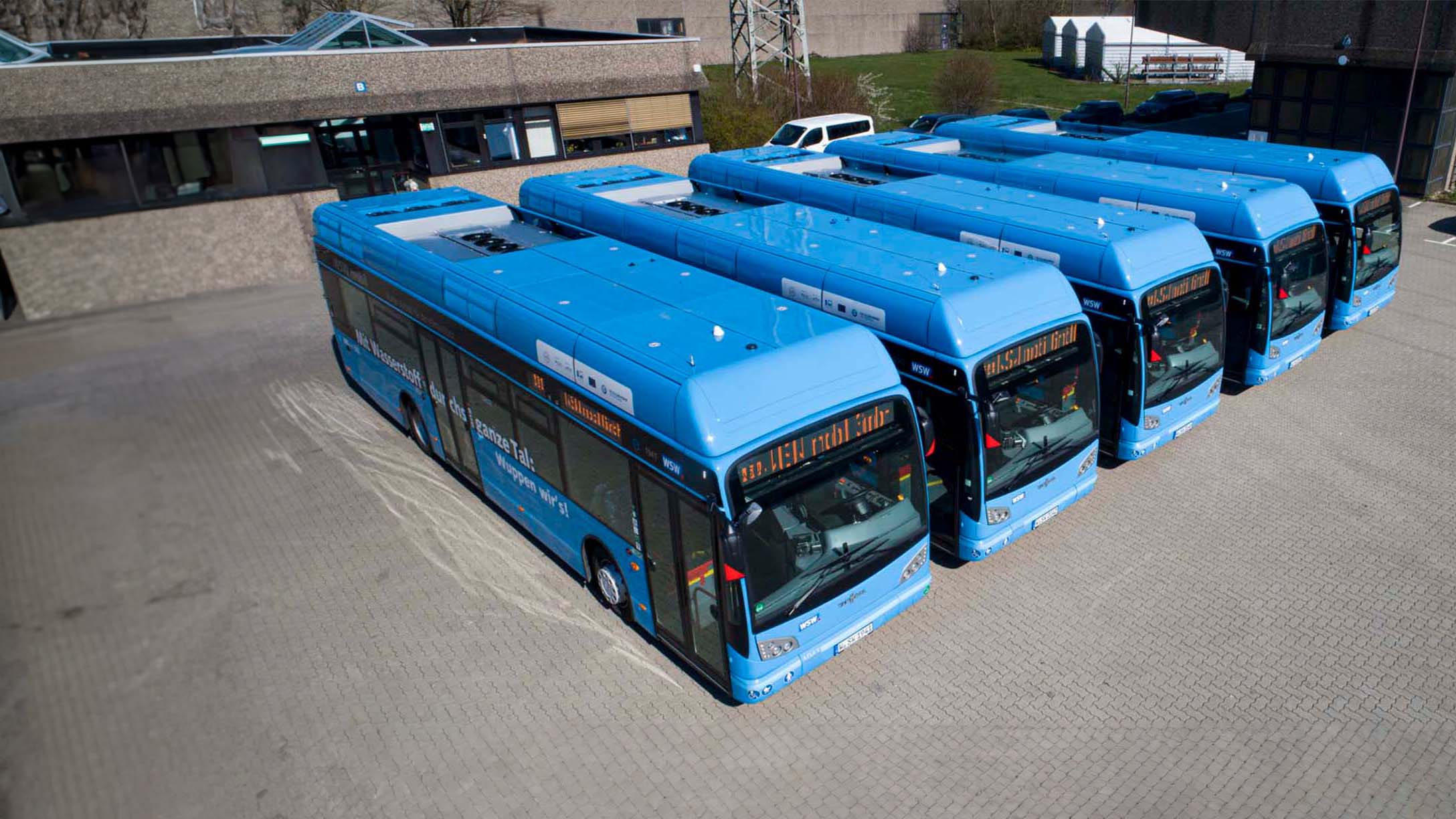
bpost: Scaling fleet electrification with the support of Geotab’s EV data insights

Table of contents
Challenge: Getting access to reliable data for electric vehicles
bpost SA, part of the Belgian Post Group, is responsible for the delivery of mail across Belgium. The company runs a fleet of 10,000 vans to complete its last mile delivery services.
bpost has already converted a quarter of the van fleet to electric, and its sustainability target is to transition 100% of its last mile fleet to zero emission vehicles by 2030. In order to reach this challenging goal, the company needed trustworthy and rich EV-specific data support from its telematics provider and selected Geotab based on the accuracy and integrity of its EV data.
“With Geotab, the data on our electric vehicles is everything we wanted. It allows us to optimise our electric fleet operations, and to take them to the next level.”
– Rik Vandenberghe, National Fleet & Equipment Manager, bpost
Solution: Safety and sustainability working hand in hand
For bpost, sustainability is about more than just reducing carbon emissions. Instead, the sustainability team links together all of their ESG targets relating to the environment, people and governance. Driver safety is therefore a top priority, and with Geotab’s data they have learned that a safer driver is also a fuel and electric efficient driver.
To monitor driver safety, every driver receives a daily eco score, which consists of five safety and eco-friendly parameters; harsh acceleration, braking and cornering, excessive speeding, and energy consumption (either electric or fuel). These scores are fed into a national KPI dashboard, which depot managers use to monitor the performance of their drivers compared to the rest of the company, informing safety feedback and training.
The company also gamifies eco-driving performance to increase driver engagement and help them take greater ownership of their own safety. With the “Eco Driving Challenge”, the drivers with the best eco scores from each depot are entered into an annual event, consisting of driving challenges that test their safety performance, ability to perform maneuvers and to complete race tracks with the best electric economy. The best driver from the national competition is entered into an international competition, organised by the International Post Corporation (IPC), to find the best European postal delivery driver.
Geotab’s rich EV data supports the transition to electric
Geotab’s connected vehicle data enabled bpost to strategically electrify its fleet in a financially and operationally feasible manner. This played a fundamental role in planning the necessary charging infrastructure.
“If we didn’t have the data, we’d have to install a huge high voltage infrastructure to charge all of the vehicles at a site at the same time, since most vans come back at roughly the same time of day. But that’s something we couldn’t do as it would cost too much and require too much power.”
– Els Renders, Program Manager Sustainability, bpost
Instead, with Geotab’s rich data on route distances and EV range capabilities, together with live battery state of charge (SOC) monitoring, the sustainability program management team was able to assess exactly how often each vehicle needed to charge, and create a system of alternated charging to significantly reduce the site power demands. Some vehicles are now only charged every 2, 3 or even 4 days, but that required complete confidence in the data to ensure that the vehicles could safely complete their routes. The connectedness of the charging data with the route data was of particular importance, with dynamic route schedules linking the right vans to the right routes, based on their remaining range capabilities.
Improving electric range with data-informed driver training
As the majority of bpost’s routes are short, the team initially planned to charge the vehicles every two days. However, in many instances they found that this wasn’t possible, and they needed Geotab’s data to understand the difference between the electric van’s theoretical consumption, and the real consumption, which could have been as much as double. Equipped with data on electricity efficiency for each driver in the fleet, they were able to coach the drivers with poorer efficiency, to improve the range of their EVs and support their alternated charging strategy.
While the drivers were keen to use the EVs, they needed to understand that driving one in an energy-efficient manner wasn’t the same as for an internal combustion engine (ICE) vehicle. They also needed data-backed training to understand that they had sufficient range to complete their routes, even when they didn’t start the day with a fully charged battery, changing their mindsets and reducing range anxiety.
Planning for the impact of Black Friday and Christmas on EV routing
bpost’s vans and charging infrastructure are most heavily utilised from mid-November until the end of the holiday season. As this is also when the temperatures fall, the fleet team has to consider the effect that this has on EV battery performance and range. During this high volume period, bpost relies heavily on Geotab’s real-time state of charge (SOC) and consumption data, integrating with the data derived from their charging infrastructure, to ensure route success.
When a vehicle’s SOC falls below the threshold that will allow it to safely complete the next day’s route, the fleet team receives an alert to warn them that it will have to come off the alternated charging scheme, and be charged overnight.
Delivering on its customer sustainability promises
Geotab’s data also helps bpost to uphold its sustainability commitments. The company has a program for some of its customers that promises that all of their parcels will be delivered emission free. With a mixed fleet of internal combustion engine (ICE) vehicles and EVs, the depot manager uses MyGeotab to see which routes contain these parcels, so that they can allocate those jobs to routes with an electric van.
Results: Improving safety and sustainability together
With the help of Geotab’s connected data and active insights, bpost has seen a marked improvement in the way their post people drive their vans and electric vans. This is helping to reduce the carbon emissions from their ICE vehicles, improve the range of their EVs, and make their drivers safer.
- 10% reduction in diesel consumption and associated exhaust GHG emissions from their ICE vehicles, as a result of bpost’s fuel efficiency monitoring and eco-driver training programme. This equates to 1,000,000 litres of diesel, which at an average of €1.80 per litre, has conferred a saving of €1.8M in fuel costs.
- Geotab’s electric vehicle data enables bpost to calculate the real TCO for its e-vans. The e-vans were calculated to be 8.9% cheaper than an equivalent ICE van across their service life. With this confidence in the financial viability of e-vans, bpost expects to expand its electric fleet to 3,000 e-vans by the end of 2025.
- Using Geotab’s vehicle utilisation and fleet optimisation insights, bpost has been able to reduce its fleet size by 2.1%, removing 210 vans from the fleet while doubling the number of electric vehicles since the end of 2024.
Next Steps: Strategising a fully electric future
bpost has a fixed target for the last mile fleet to be 100% CO2 neutral by 2030. To make this happen, the company will need to be able to charge between 10 and 11,000 electric vans.
“If we look at our site of the future, how can we integrate the charging infrastructure with solar panels, and put battery storage on the site? We are also looking at vehicle-to-grid tech, using the vehicles as mobile batteries. We have to connect the data to assess how we could use the vehicle batteries as part of the infrastructure, and how the infrastructure could best support the vehicles.”
– Els Renders, Program Manager Sustainability, bpost
To achieve this long-term goal, the sustainability project team is working with the fleet and infrastructure teams on two major electrification projects. The fleet team is ideating the van of the future, and the infrastructure team is considering the site of the future, both of which rely heavily on Geotab’s connected data.
From the Sustainability Manager
“For bpost, it’s really important that we’re sustainable, but we’re also in fierce competition with the other parcel operators, so we need to be able to justify the financials. If we didn’t have Geotab’s data, we wouldn’t be able to plan our charging infrastructure requirements in an operationally and financially feasible manner. But with this connected data, we’ve been able to come up with a program of alternated charging that reduces our power requirements, with the knowledge that we’ll still be able to complete our routes successfully.”
– Els Renders, Program Manager Sustainability, bpost
Client profile

Client name:
bpost
Industry:
Last mile delivery
Types of vehicles:
Vans, 2,500 of which are EVs
Fleet size:
10000
Fleet focus:
Sustainability
Other stories

Go-Ahead Group: Gaining critical maintenance insights and electrifying with confidence
November 13, 2025

Circet: boosting safety and sustainability with fully integrated fleet insights
August 5, 2025
%20(1)%20(1).jpg)
Tarmac achieves a safer, more sustainable, data-driven fleet via Motormax and Geotab's solution
April 8, 2025

How Geotab is helping Wuppertaler Stadtwerke introduce hydrogen-powered buses
March 17, 2025